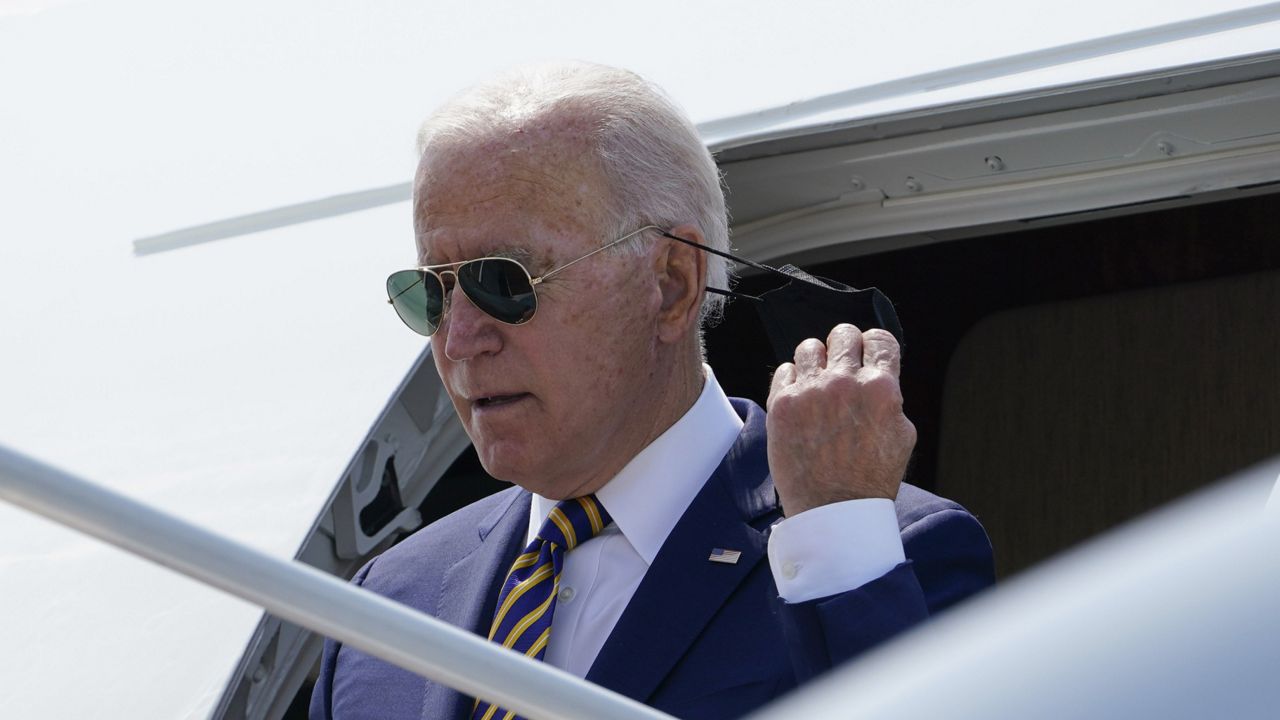President Joe Biden on Thursday gathered a bipartisan group of lawmakers behind closed doors in the White House to witness the signing of two bills aimed at addressing the ongoing opioid crisis in the United States.
The president signed S. 957, the Dispose Unused Medications and Prescription (DUMP) Opioids Act, a bill which directs the Department of Veterans Affairs to ensure certain medical facilities provide locations for individuals to dispose of controlled substances.
The bill also allows the VA to carry out public information campaigns in order to inform the public about the locations of said disposal sites, which will be available both to veterans and the wider surrounding communities by 2022.
“It’s going to help folk all over the country get rid of their unused opioids,” Rep. David Trone, D-Md., said of the bill on his way to witness the signing on Thursday. “That's so often how folks start into the addiction pattern with pills in their medicine cabinets at home.”
Trone added that the act was a “big win” for Congress, pointing out the bipartisan nature of the legislation. The Senate version was sponsored by Sen. John Kennedy, R-La., who on Tuesday said he hoped President Biden would sign the “commonsense, compassionate bill very soon.”
“The opioid crisis hurts families in Louisiana and around the country every day, and the DUMP Opioids Act gives everyone a key tool to make our communities safer and healthier,” Kennedy added.
Both Kennedy and Trone were in attendance at the bill's signing on Thursday, per the White House.
In Maryland, on average, more than six residents die from opioids overdoses each day, the attorney general’s office said. Last year, 2,518 Marylanders died from overdoses. From 2007 to 2019, more than 17,000 Marylanders died from opioid overdoses.
Bill S. 1910, the Major Medical Facility Authorization Act of 2021, allocates a little over $2 billion to a number of projects at VA medical centers across the country. The projects include a new spinal cord injury center in Dallas, the construction of an outpatient clinic and national cemetery in Alameda, California and “seismic corrections” to the mental health and community living center at a facility in Long Beach, California.
Overdose deaths soared to a record 93,000 last year in the midst of the COVID-19 pandemic, the U.S. government reported in mid-July. Experts say lockdowns and other pandemic restrictions isolated those with drug addictions and made treatment harder to get.
While prescription painkillers once drove the nation’s overdose epidemic, they were supplanted first by heroin and then by fentanyl, a dangerously powerful opioid, in recent years. Fentanyl was developed to treat intense pain from ailments like cancer but has increasingly been sold illicitly and mixed with other drugs.
Fentanyl was involved in more than 60% of the overdose deaths last year, CDC data suggests.
The bipartisan legislation was cosponsored by the Veterans’ Affairs Committee Chairman Sen. Jon Tester, D-Mont., and Ranking Member Sen. Jerry Moran, R-Kan.
“VA medical facilities provide a wide range of critical health care services to veterans and their families in every corner of the country,” Sen. Tester said in a statement earlier this week. “House passage of our bipartisan bill means we’re on track to deliver key projects that’ll create jobs and expand quality care to veterans nationwide, and I look forward to President Biden quickly signing this legislation into law.”
The Associated Press contributed to this report.



